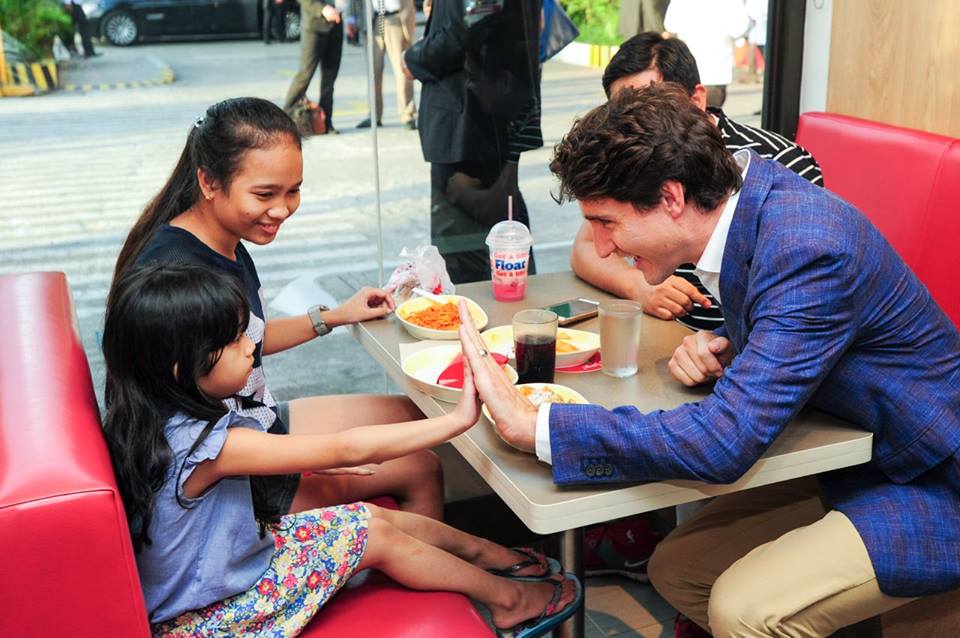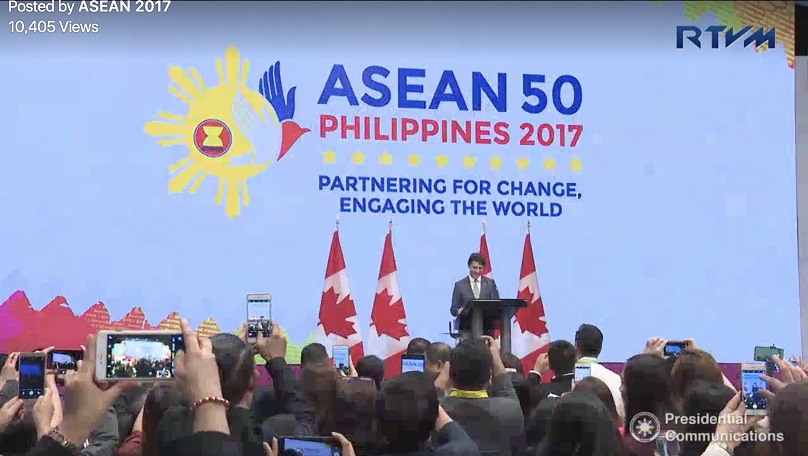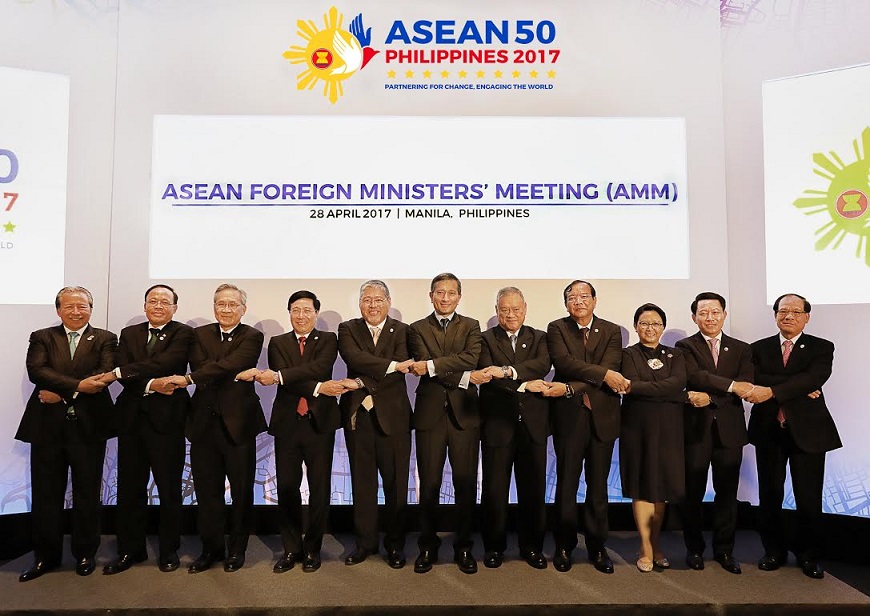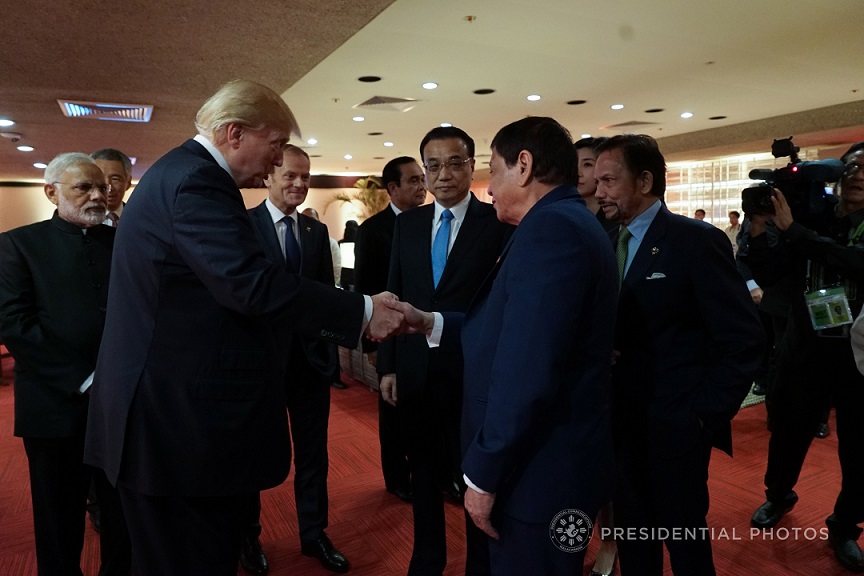Amid widespread flak for his supposed publicity stunts which critics describe as evading tactics, Prime Minister Justin Trudeau took the bull by the horns and brought up before the media the issue of Canadian garbage dumped in the Philippines.
And he had good news: It is now “theoretically possible” to ship back to Canada the 2,540-ton trash that has festered in the port of Manila for four years since 2013, or prior to Trudeau’s election.
The prime minister, describing a brief chat with President Rodrigo Duterte at the sidelines of the Association of Southeast Asian Nations (ASEAN)-Canada summit Nov. 14, said he pledged to engage in finding a solution for the garbage dumped in the country.
He said his discussion with Duterte was “throughout a very cordial and positive exchange.”
“We also discussed the garbage issue which I know has been a long-standing irritant, and I committed to him, and I am happy to commit to you all now, that Canada is engaged in finding a solution for that,” Trudeau said in a press conference following the summit.
Yet, he admitted that problems remain in the form of financial costs and responsibility among the concerned parties.
A day earlier, nonprofit Greenpeace Philippines urged Trudeau to take back the 103 container vans containing spoiled adult diapers and household trash, misdeclared as recyclables, illegally shipped to Manila from 2013 to 2014.
“His PR antics cannot cover the stinking Canadian waste issue as long as it is left rotting on our ports,” Greenpeace Southeast Asia campaigner Abigail Aguilar said in a statement.
The latest in Trudeau’s so-called publicity stunts was a surprise visit to a local fastfood chain in Tondo, Manila, where he interacted with customers and was seen leaving with a take-out meal, an act that gained global attention, but also media criticism.
“We welcomed him with our usual Filipino hospitality, fanfare and respect, we hope he will also show respect to our country and our people by taking back their waste to Canada, where it belongs,” the nonprofit group added.
At the briefing, Trudeau told reporters that the garbage issue was a “transaction that did not involve governments” but private businesses. Canadian legal barriers, he explained, had “prevented us from being able to receive the waste back in Canada.”
Trudeau was referring to the loopholes in Canadian federal laws that allowed for the shipment of trash to the Philippines, which he had pledged to remedy during his 2015 visit to Manila for the Asia-Pacific Economic Cooperation summit.
Both the Philippines and Canada are signatories to the Basel Convention, an international treaty that regulates shipments of hazardous wastes between countries.
In 2016, a Manila court ordered the shipment of garbage back to Canada.
But Geri-Geronimo Sañez, hazardous waste management chief of the Department of Environment and Natural Resources, refused to share updates on the court order during a separate news briefing on Nov 14.
“Right now, we have filed and the criminal case is ongoing. So, I cannot really share much of what will happen, but there is already a court order to return it to Canada,” he said.




